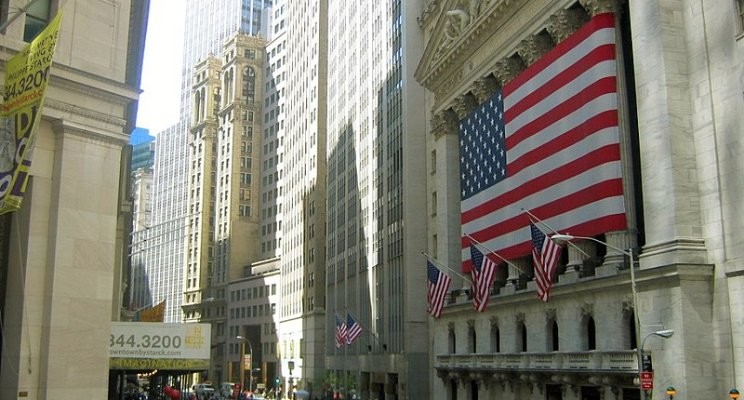
(Photo : LinkedIn)
US markets
- Wall Street faces challenges including economic data, election uncertainty, and corporate earnings tests.
- The S&P 500 hit an all-time high after a 50-basis point rate cut by the Federal Reserve.
- Market volatility is expected to increase in October due to the upcoming presidential election.
- The upcoming third-quarter reporting season will be a crucial test for the market's resilience.
As the third week of September 2024 draws to a close, Wall Street finds itself at a crossroads. The U.S. stock market, which has been on a roaring rally, is about to face a series of challenges that could potentially disrupt its upward trajectory.
These challenges include a barrage of economic data, political uncertainty due to the upcoming presidential election, and a corporate earnings test.
The S&P 500, the benchmark index for the U.S. stock market, hit its first closing all-time high in two months this week. This milestone was achieved after the Federal Reserve announced a hefty 50-basis point rate cut, marking the beginning of the first U.S. monetary easing cycle since 2020.
The index has risen by 0.8% so far in September, a month that is historically the weakest for stocks, and has gained 19% year-to-date.
However, the market's performance could be affected by the upcoming November 5 election. According to Angelo Kourkafas, a senior investment strategist at Edward Jones, the market could experience volatility due to the election. "We're entering that period where seasonality has been a bit less favorable," Kourkafas said. Despite the excitement about the start of the new rate-cutting cycle, it could still be a bumpy road ahead.
Historical Trends and Election Uncertainty
Historical data supports Kourkafas's prediction. The second half of September is typically the weakest two-week period of the year for the S&P 500, according to a Ned Davis Research analysis of data since 1950. Furthermore, the index has recorded an average 0.45% decline in October during presidential years, according to data from CFRA dating back to 1945.
The market's volatility tends to increase in October during election years. The Cboe Market Volatility index (VIX) usually rises to an average level of 25 at the start of the month, compared to its long-term average of 19.2, according to an Edward Jones analysis of the past eight presidential election years. The VIX was recently at 16.4.
This year's election, which is a close race between Republican Donald Trump and Democrat Kamala Harris, could have a significant impact on the market. "Unless the data deteriorates considerably, we think U.S. elections will start to be more at the forefront," UBS equity derivative strategists said in a note.
Economic Data and Corporate Earnings
Investors are also closely monitoring economic data to determine whether the economy is on track for a soft landing, a scenario in which inflation moderates without severely impacting growth. Stocks tend to perform better after the start of rate cuts in such a scenario, as opposed to when the Fed cuts during recessions.
In the coming week, investors will be paying close attention to reports on manufacturing, consumer confidence, and durable goods, as well as the personal consumption expenditures price index, a key inflation measure.
The monthly U.S. jobs report, which is due on October 4, will also be under scrutiny after Fed Chair Jerome Powell stated that the central bank wanted to stay ahead of any weakening in the job market as it announced its rate cut.
Art Hogan, chief market strategist at B Riley Wealth, emphasized the importance of these reports. "We're going to have hyper-focus on anything that speaks to the strength of the labor force," he said.
The recent rally in stocks has led to an increase in valuations. The S&P 500 now has a price-to-earnings ratio of 21.4 times expected 12-month earnings, significantly above its long-term average of 15.7, according to LSEG Datastream. This increase in valuations has put more pressure on corporate earnings to be strong in order to support stock gains.
The third-quarter reporting season, which begins next month, will be a crucial test for the market. S&P 500 earnings for the period are expected to have risen by 5.4% from the previous year, and then jump nearly 13% in the fourth quarter, according to LSEG IBES.
However, not all companies are expected to report strong earnings. FedEx, for example, saw its shares tumble after it reported a steep quarterly profit drop and lowered its full-year revenue forecast. "Extended multiples put pressure on macro data and fundamentals to support S&P 500 prices," Scott Chronert, head of U.S. equity strategy at Citi, said in a report.
The combination of economic data, political uncertainty, and corporate earnings will determine whether the market's rally can continue or whether it will face a correction. The coming weeks will be a litmus test for the resilience of the U.S. stock market amidst these challenges.









